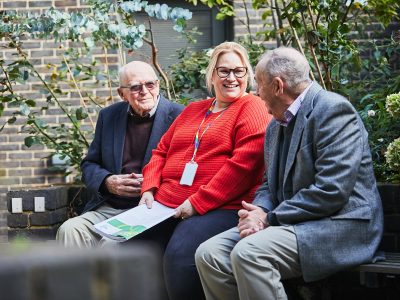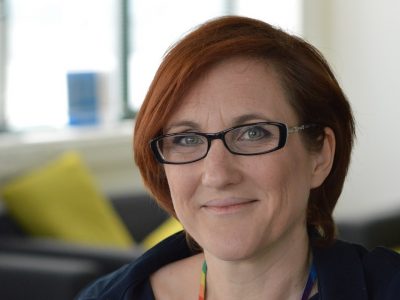“I get the impression that you doctors just don’t want to actually see anyone any more”.
This came up in a conversation I had last week with one of our Benfield Valley surgery patients. I was, let’s be honest, a bit stung by this, not least because I know that it is not true for me, and not true for any of the clinicians I work with. Nevertheless, I know that this person was being honest about how it feels for him, and I know for others like him.
The ‘good old days’
Sometimes we all view the past through a lens that may not always be entirely clear or untainted. In the good old days, you could always turn up at the surgery and get GP appointments, day or night, seven days a week, with that nice doctor whom you had known since you were a small child. They didn’t need a receptionist, there was always a warm fire in the waiting room grate, and a small boy with a saucepan stuck on his head.
It’s a fast changing world. It is to be celebrated that we are generally all living longer, healthier lives. It does mean though that many more people are living with multiple long term health conditions, and there has been a huge growth in the numbers and types of treatments that are available. This means that the number and complexity of problems that practices look after has greatly increased.
A history of the GP gap
The UK has never trained enough doctors to meet its needs; we used to get our doctors, especially our GPs, especially inner city GPs, from overseas; from Ireland in the first half of the twentieth century (my granddad) and then from the Indian subcontinent.
Now that supply has either dried up or been stopped by changes in immigration law. There are far more women doctors now. Women are more likely than men to take career breaks to care for their families. And increasingly, men are also taking career breaks to help care for their families. These things have created a bit of a crisis for UK General Practice; there is a very significant shortfall in the number of GPs available to meet a greatly increased set of needs.
The scramble for GP appointments
Our Benfield surgeries struggled for several years with an appointment system that everyone agreed was unsatisfactory – people having to make a scramble first thing in the morning to try to get through on the phone to book an appointment, only to be told that there were no available appointments for two weeks or more. The system was stressful for everyone: patients, receptionists, clinicians.
It was on this background that we decided to try out a ‘telephone first’ model that has been taken up by an ever increasing number of practices across the UK. The fundamental difference is that it recognises that patients have many and varied needs, and that there are a range of ways that these needs can be met. Not everything requires a face-to-face appointment with a doctor; it is not a one size fits all.
Telephone first appointments
What we have found out is that over half of the contacts that people make with us are for concerns that can be resolved over the phone – queries about medicines, requests for certificates or letters, advice about some acute minor illnesses. These requests can be dealt with pretty much there and then, and are a lot more convenient for most of our patients.
When we talk to someone on the phone and they tell us that they really feel they want to see us, or we think that we really need to “eyeball” or examine the person to be sure about what is really going on, then we arrange to see them on that same day (and 10% of people to choose to book a face-to -face appointment a few days ahead).
More consultations than ever before
By working in this way, we have actually been able to do more consultations than ever before, and nobody has to wait for two weeks to get to be seen anymore. We also know that it is not perfect, and we are continually adapting our system as we learn about what works well, and what needs improving.
We are looking at ways of extending the “menu” of options further:
- giving patients direct electronic access to their medical records
- video consultations
- giving patients an e-portal to talk to us
- giving patients a direct link to a pharmacist who can also access the medical record (about one in five of all our patient requests for help are about medicines, and a pharmacist would actually give better and more expert advice than the GP).
Longer consultations
It is not just more consultations. We also believe that we can begin to offer longer consultations, to spend more time with people when they first put up their hand to ask for help. By spending more time listening, at the beginning, we are more likely to find out what really matters to the individual, and to have a proper discussion about the options that are available to make a difference to that individual.
The forty or so in depth, randomly chosen, case studies that we have now looked at in Here across the services that we run all tell us the same thing about where we, as a system, repeatedly fail: if we get it right, from the start, we are more likely to make a positive difference, do less harm, and, incidentally, waste less money.
You may also like

16.11.2023 | by Rich Taunt
Rebel alliance: The ever greater need for social enterprise

11.09.2023 | by Sarah James
Memory Assessment Service & LGBT Switchboard collaboration

06.01.2023 | by Helen Curr
Dementia care: What if...

